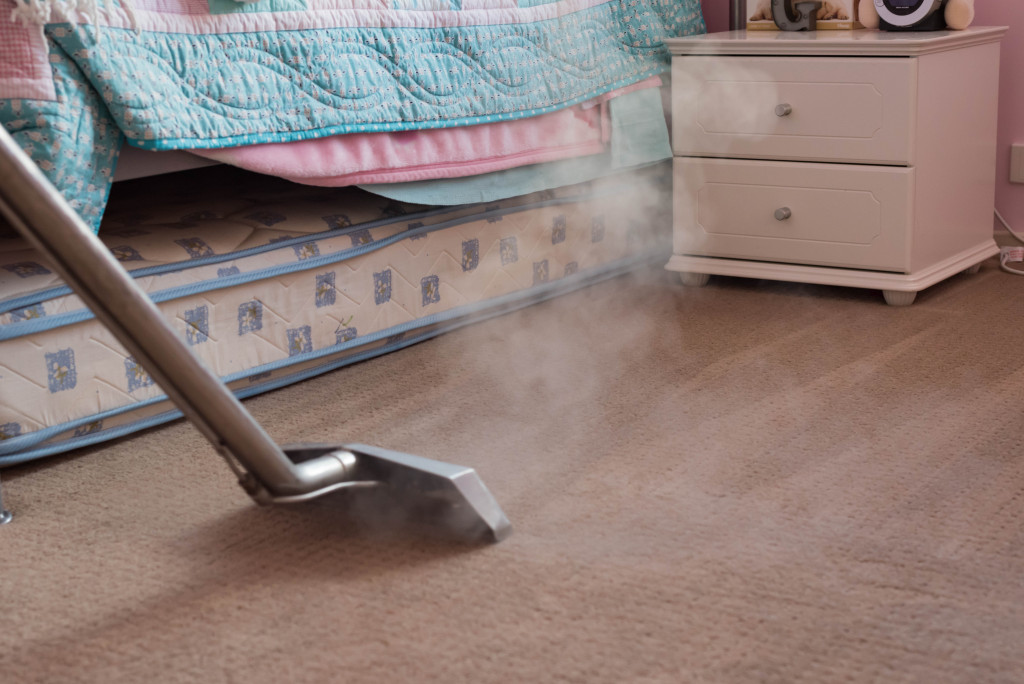Do you know that your home can make you sick? If you are suffering regularly from respiratory problems, cognitive issues, emotional changes, and physical symptoms, your home could be making you sick. For decades, we are so focused on outdoor pollution that we forgot indoor air can be polluted, too. Toxins, pests, molds, gases, and mites are everywhere. The more you expose yourself to these things at home, the more they can affect your health.
Every household is different. What toxins are present in one household may not be present in yours. That’s why you need a home inspection every now and then to identify the contaminants in the house that could be making you sick. But most of all, you should determine the possible sources of what’s pulling down the quality of indoor air in your house. It will come as a surprise that you can avoid these things by cleaning and organizing your home.
Tobacco Smoke
Is someone a smoker in your home? The least this person can do is not to smoke inside the house. Tobacco smoke brings a lot of contaminants. It can also lead to lung cancer, lung problems, heart disease, and many other health concerns.
Heating and Cooling Systems
One of the major culprits in the contamination of indoor air is the heating and cooling system. Air-conditioning, in particular, leaves traces of water in the ducts. They then become the perfect breeding ground for mold and bacteria. They can cause respiratory issues such as asthma, breathing problems, allergies, headaches, and cough.
You can get your HVAC system checked and cleaned regularly by professionals. You only need to do this every two years. It is not so much a big work that you should forget about the maintenance work.
Furniture
Funny enough, your furniture can also be causing health problems. When was the last time you washed your throw pillows? How about the mattress? How old is it? There are dust mites and microscopic bugs that live in mattresses, pillows, and fabrics. You have to change your mattress at least every five years.
Homeowners also forget about carpet cleaning. Carpets may contain dust, dirt, mites, and other allergens. If you have a pet indoors, pet dander can cling to the carpets. Vacuuming the carpets weekly or having a professional clean them will remove these risks.
Water Damage
The worst thing that can contaminate your home is molds and mildew due to water damage. When does this happen? Water damage can occur because of flooding in your basement or leaky faucets and pipes or malfunctioning appliances such as washing machines and dishwashers. When this happens, call a professional immediately. Allowing standing water in your home will breed mosquitoes. It will also cause mold and mildew that can lead to respiratory problems.
Ventilation

Modern-day construction materials and methods put such an emphasis on insulation that they often forget about the importance of ventilation, too. New homes are more air-tight than older homes. While this is great for keeping the homes cool or warm accordingly, airborne particles can become trapped indoors. They reduce the quality of indoor air.
You need a dehumidifier or humidifier to correct these issues. It is best to work with a professional to determine what hardware you need. Though they cost much as a glance, these stand-alone devices will last for a long time and will improve the quality of the air you breathe.
Radon Gas
Called the silent killer, radon gas is tasteless, odorless, and colorless. So, how do homeowners know they have radon gas in the house? You have to test your home for its presence. Radon gas is the second-leading cause of lung cancer behind smoking. When inhaled, it can damage the cells in your lungs.
If you will get someone to test your home for the presence of radon gas, you need to make sure you are hiring a qualified professional. You need this test anyway if you are going to sell your home in the future. If there is radon gas in your home, you can install a radon fan system.
Pest Infestation
How do you know there is a pest infestation in your home? You can look for droppings, smells, sounds, and holes or cracks in your home. An occasional squirrel is easy to deal with, but a colony of ants is a bit harder to solve. Don’t underestimate pests in your home. They can weaken the structure and foundation of the building. They can also make you sick.
You can deal with pest infestation more effectively by eliminating the source, sealing holes and cracks, not leaving food out, and eliminating moisture and dampness. If you need a professional, you may have to pay a couple of hundreds of dollars to remove the pests. A pest-free home is not only easier to sell (if you’re planning to in the future), but it makes your home a safer and more pleasant place to live in.
Homeownership is more than about decorating the home. It’s about making sure it is safe for you and your family. Remember that a safe home is a happy place.
